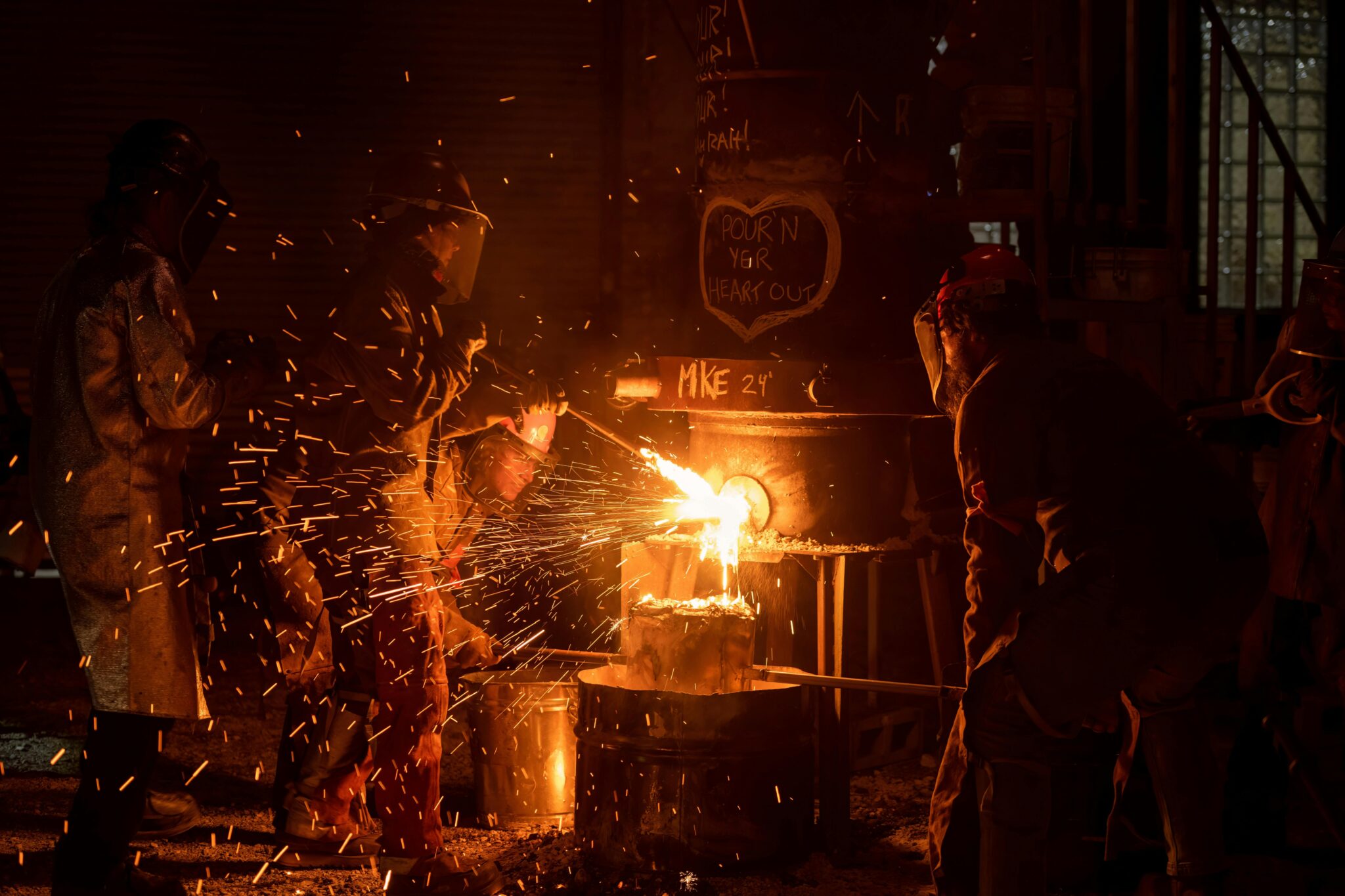In the world of fluid control, valves play a critical role in regulating flow, pressure, and direction. Their performance directly impacts the efficiency and safety of various systems, from pipelines and industrial plants to automotive engines and medical devices. Achieving optimal valve performance hinges significantly on the precision of the manufacturing processes used, particularly forging and casting. We will explore how precision in these processes contributes to leak prevention and extended valve longevity.
Forging: Precision for Strength and Reliability
Forging, a process that shapes metal through compressive forces, offers distinct advantages for valve manufacturing, especially when precision is paramount.
- Enhanced Material Integrity: The forging process refines the grain structure of the metal, eliminating internal voids and porosity. This results in a denser, more homogenous material with superior mechanical properties, including strength, ductility, and impact resistance. This enhanced integrity is crucial for valve components subjected to high pressures and temperatures.
- Precise Shaping: Modern forging techniques, including closed-die forging, enable the creation of complex shapes with tight tolerances. This precision is essential for valve components like bodies, stems, and discs, ensuring proper fit and function.
Improved Fatigue Resistance: Forged components exhibit excellent fatigue resistance, making them ideal for valves operating under cyclic loading conditions. Precise forging minimizes stress concentrations, further enhancing fatigue life.

Casting: Precision for Complex Geometries
Casting, which involves pouring molten metal into a mold, offers versatility in creating complex valve shapes. Precision in casting is equally important for valve performance.
- Accurate Mold Creation: The accuracy of the mold directly impacts the dimensional accuracy of the cast valve component. Precise mold making, using techniques like investment casting or die casting, ensures that the final product meets the required specifications.
- Consistent Material Distribution: Careful control of the casting process, including pouring temperature and cooling rate, is essential for achieving uniform material distribution and minimizing defects like porosity or shrinkage. This consistency is crucial for valve components that must withstand pressure and prevent leaks.
Complex Shape Capability: Casting excels at producing intricate internal passages and complex geometries, which are often required for valve designs. Precision in casting allows for the creation of these complex shapes while maintaining dimensional accuracy.

Key Factors Influencing Valve Performance
Material Integrity
- Forging: Precision forging enhances material integrity by aligning the grain structure along stress lines, improving tensile strength and impact resistance. This is crucial for valves in high-pressure and high-temperature environments.
- Casting: Precision casting ensures uniform material distribution, reducing internal stresses and defects. However, the inherent porosity of cast materials can compromise performance in extreme conditions.
Surface Finish
- A smooth surface finish, achievable through precision forging, reduces friction and turbulence in fluid flow, enhancing operational efficiency and leak prevention. Forged valves with polished surfaces also resist pitting corrosion, extending their lifespan..
- Cast valves often require additional machining to achieve a comparable surface finish, increasing production costs and complexity..
Dimensional Accuracy
- Precision forging maintains tight tolerances, ensuring that valves fit perfectly in their intended applications. This is critical for industries like aerospace and medical manufacturing, where even minor deviations can lead to system failures..
- Precision casting can achieve dimensional accuracy for complex shapes, but post-casting machining is often required to meet exacting standards..
Applications: Where Precision Makes a Difference
- Forged Valves: Ideal for high-pressure, high-temperature applications such as oil and gas pipelines, power generation, and aerospace. Their precision-engineered strength and durability make them the preferred choice for critical systems..
Cast Valves: Suitable for less demanding environments like water treatment, HVAC, and firefighting systems. Precision casting enables cost-effective production of large, complex valves with adequate performance for these applications.

Closing the Loop with Metaval
Precision in forging and casting is not merely a matter of dimensional accuracy; it’s a fundamental requirement for achieving optimal valve performance. From leak prevention and longevity to reliability and efficiency, precision plays a critical role in ensuring that valves function flawlessly and contribute to the safe and efficient operation of various systems.
At Metaval, we specialize in precision-engineered valves tailored to your specific needs. Contact us today to learn how our expertise in forging and casting can enhance your operations.

Source Links
- Optimization of Precision Forging Process for Large Flange Cylinder Parts
- The Impact of Forged Valve Surface Finish on Performance and Corrosion Resistance
- How Precision Forging Improves Performance in Critical Applications
- Leakage Reasons and Prevention Measures of Cast Steel Valves
- Shape-Property Synergistic Control in Closed Die Forging of Large-Diameter Copper Alloy Valve Bodies
- Defects and Remedies in Casting Processes: A Combinatorial Approach
- Forged Valves vs Cast Valves: Superior Performance Explained



